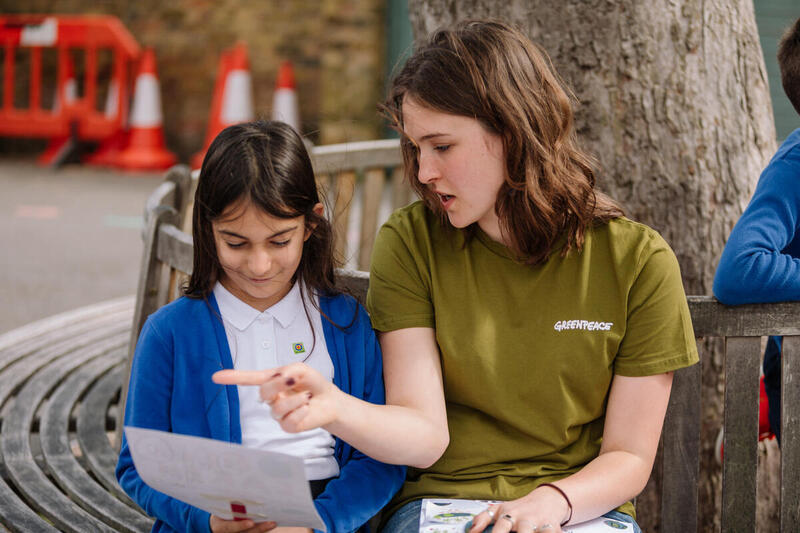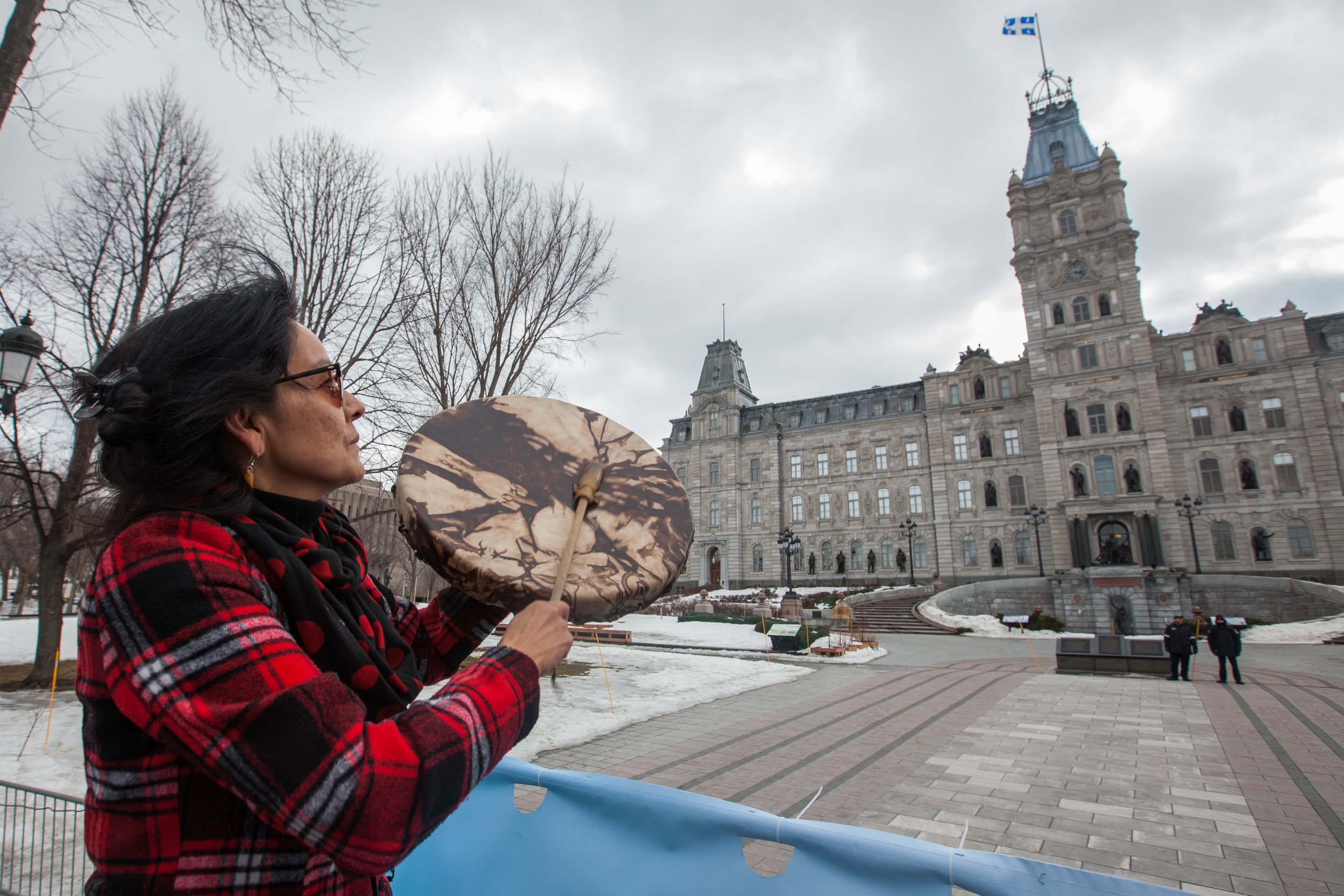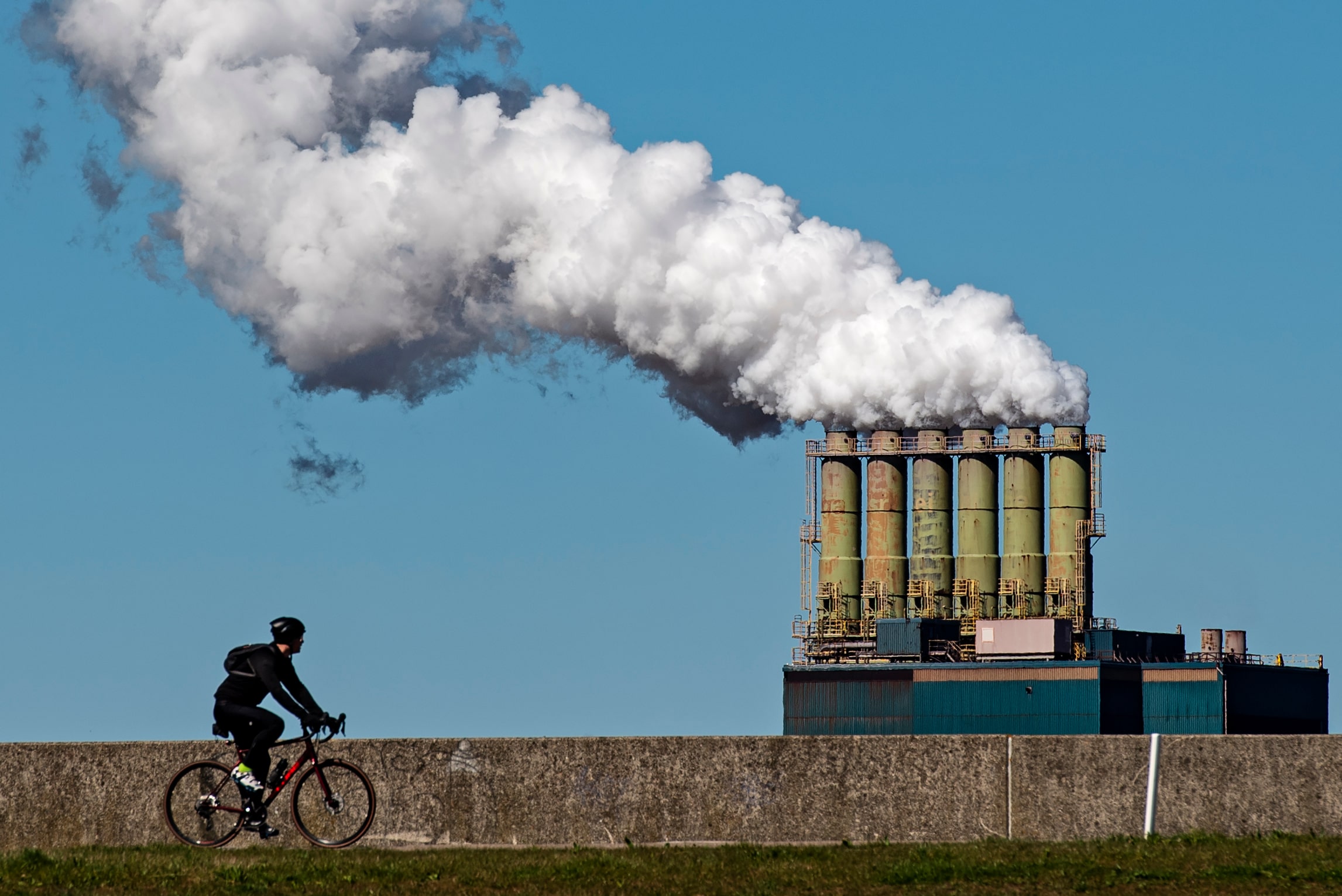Think saying “no thanks” to plastic products is no big deal? Think again.
Every year, the world makes over 400 million tonnes of new plastic. Almost half of that is used once and tossed. Less than 10% gets recycled. The rest ends up in landfills, oceans, and even inside animals.
Plastic waste is often dumped far from where it was used, leaving the communities who are least responsible for the problem to face the greatest impacts. Richer countries, like Canada, send their plastic waste to poorer countries, like Malaysia or Indonesia. There, much of it is burned, polluting the rivers and the air and making people sick.
As if all that’s not enough, there’s another problem with plastic. It’s made from fossil fuels, the things heating up our planet and causing the climate crisis.
That’s why more and more people are saying “no” to plastic and sparking a global movement that is moving mountains … of plastic pollution!
Living a zero-waste life
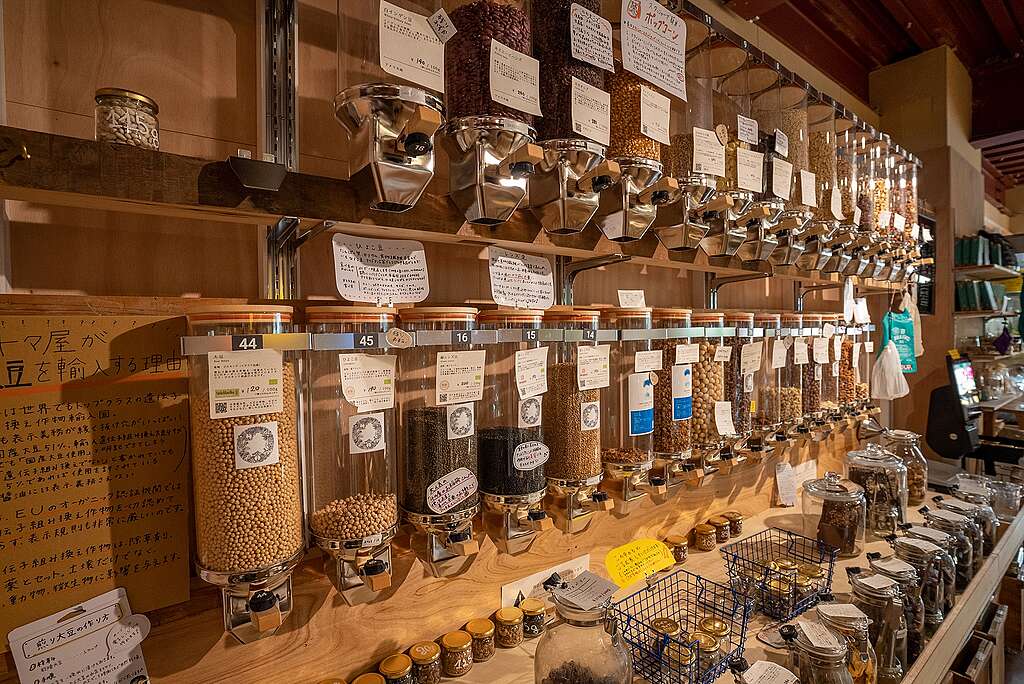
A zero-waste lifestyle is all about cutting trash. The goal? Send as little as possible to the landfill. To become a zero waster, refuse what you don’t need, reduce what you buy, reuse what you can, recycle when needed, and rot (compost) the rest.
It’s not only about trying to fit a year’s worth of garbage into a mason jar (though some people do!) It’s about rethinking habits, like how much food you waste or whether you could use a reusable container from home rather than a plastic takeout container.
Zero-waste stores have popped up in cities from Vancouver to Charlottetown. Here, customers bring their own containers from home to fill with food or personal care or cleaning products. No plastic packaging required! The number of zero-waste stores is growing around the world, and it’s only the beginning.
Even big chain stores are listening. Bulk Barn now lets customers bring their own refillable containers to fill in many stores. Why? Because enough people asked for it.
Zero wasters have shown that it’s possible to live with less plastic. But they’ve also shown how hard it is to avoid plastic in a throwaway world.
So why is it up to individuals to fix plastic pollution, when companies are still pumping out so much plastic?
Calling out corporate polluters
Many people, including zero wasters, have started demanding change from the companies making and using all this plastic in the first place.
One powerful example is the Break Free From Plastic movement. Volunteers around the world clean up plastic litter and then sort it by brand. Year after year, the top polluters are the same – Coca-Cola, Nestlé, PepsiCo, Procter & Gamble, and Unilever.
These companies and others have come under massive public pressure to stop using so much plastic, especially single-use plastic packaging. They’ve made promises to use less plastic and make packaging that is reusable, recyclable, or compostable. But promises aren’t enough. That’s why activists are keeping the pressure on and also demanding that governments step in.
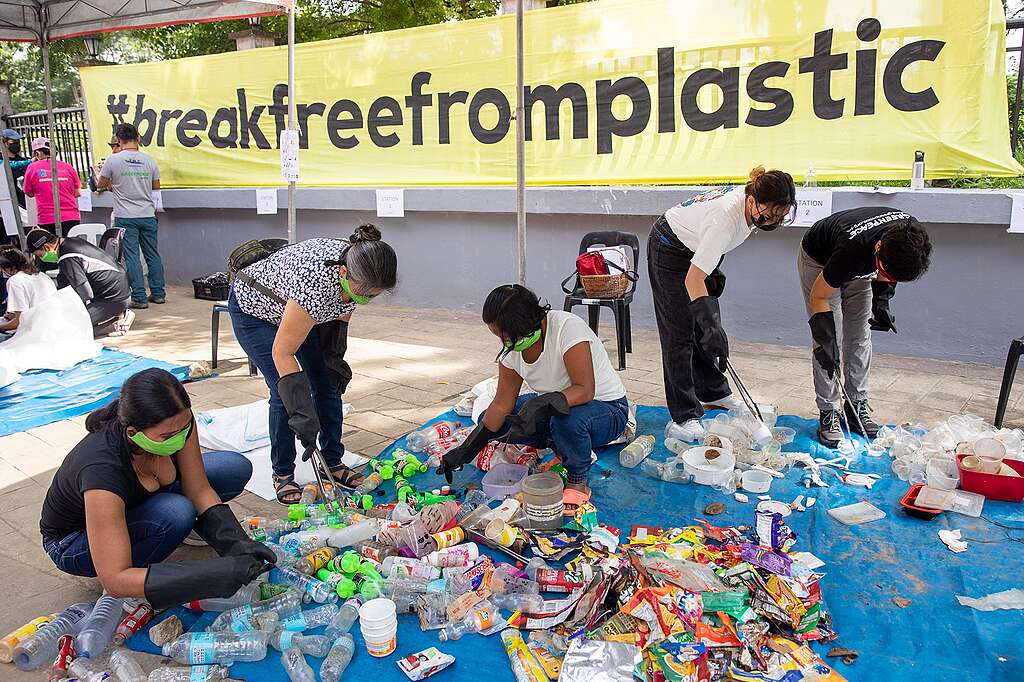
Calling on governments to say goodbye to plastic
People have been pushing governments to act on plastic pollution. And it’s working!
The first plastic bag ban in North America happened right here in Canada, in Leaf Rapids, Manitoba in 2007. More bans followed. In 2018, Montreal banned lightweight plastic shopping bags, becoming the largest Canadian city to do so and helping to set the stage for even more action across Canada, like regulations against other kinds of single-use plastics.
In 2022, the growing pressure caused Canada’s federal government to announce that it would ban some single-use plastics, including plastic bags, stir sticks, cutlery, and certain kinds of takeout containers. The plastics industry has challenged the ban in court.
Canada is not alone. Bans are popping up all over the world, from Rwanda’s ban of single-use plastic bags and bottles in 2008, to Bali, Indonesia’s ban of plastic bags, straws, and styrofoam in 2019.
People around the world are ready to break free from plastic. A few years ago, they got their biggest chance.
The Global Plastics Treaty
Something huge happened in 2022. The United Nations started negotiating a Global Plastics Treaty.
This could be the world’s best chance to end plastic pollution for good. A strong treaty will seriously cut how much plastic is made and how much pollution it creates across its lifecycle.
The treaty is still being negotiated. But the fact that it’s even on the table? That’s thanks to years of public pressure, grassroots activism, and everyday people refusing to stay silent.
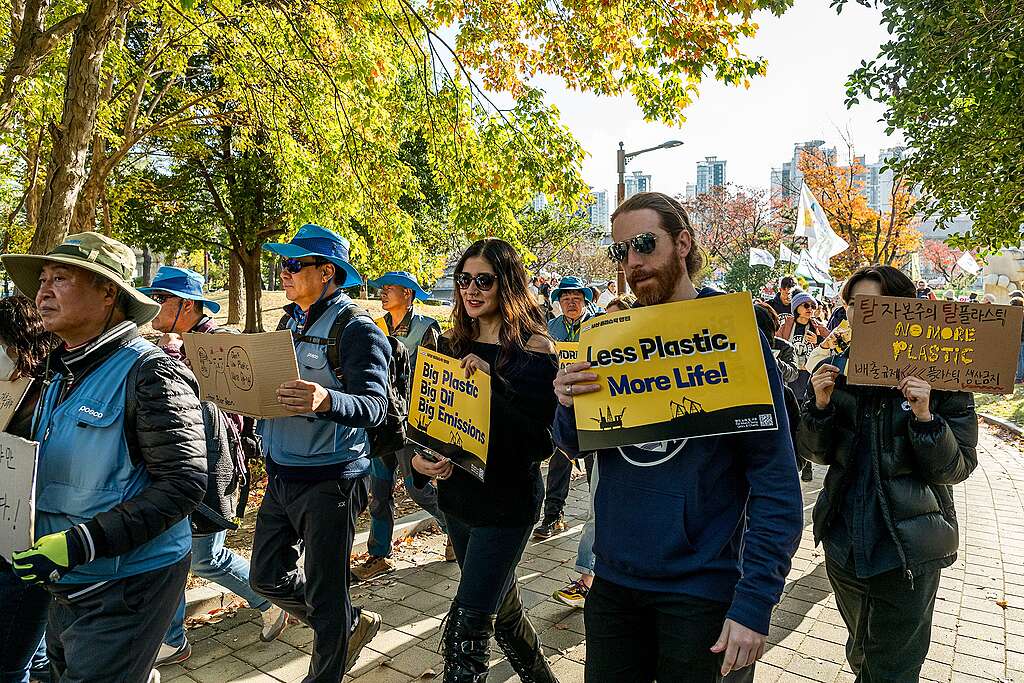
So what can you do?
Here are a few ways you can join the movement:
- Carry a reusable water bottle, bag, and container. Yes, even to the coffee shop or grocery store’s salad bar. Many places now accept them. If they do, snap a pic of your filled container and share it on social media. Tag the store and use #ZeroWaste, #PlasticFree, or #BreakFreeFromPlastic to spread the word.
- Support businesses that are already zero waste. The more we support these businesses, the more mainstream they become.
- Think about doing a plastics brand audit in your community. Not only will you be cleaning up plastic litter, you’ll be adding to the growing database of corporate polluters to call them out.
- Demand government action! Ask the federal government to support reuse systems and create a reuse strategy for the country. Urge it to expand the ban on plastics (right now, the ban only covers about 3% of our plastic waste). And tell it to support a strong Global Plastics Treaty and end the age of plastic!

